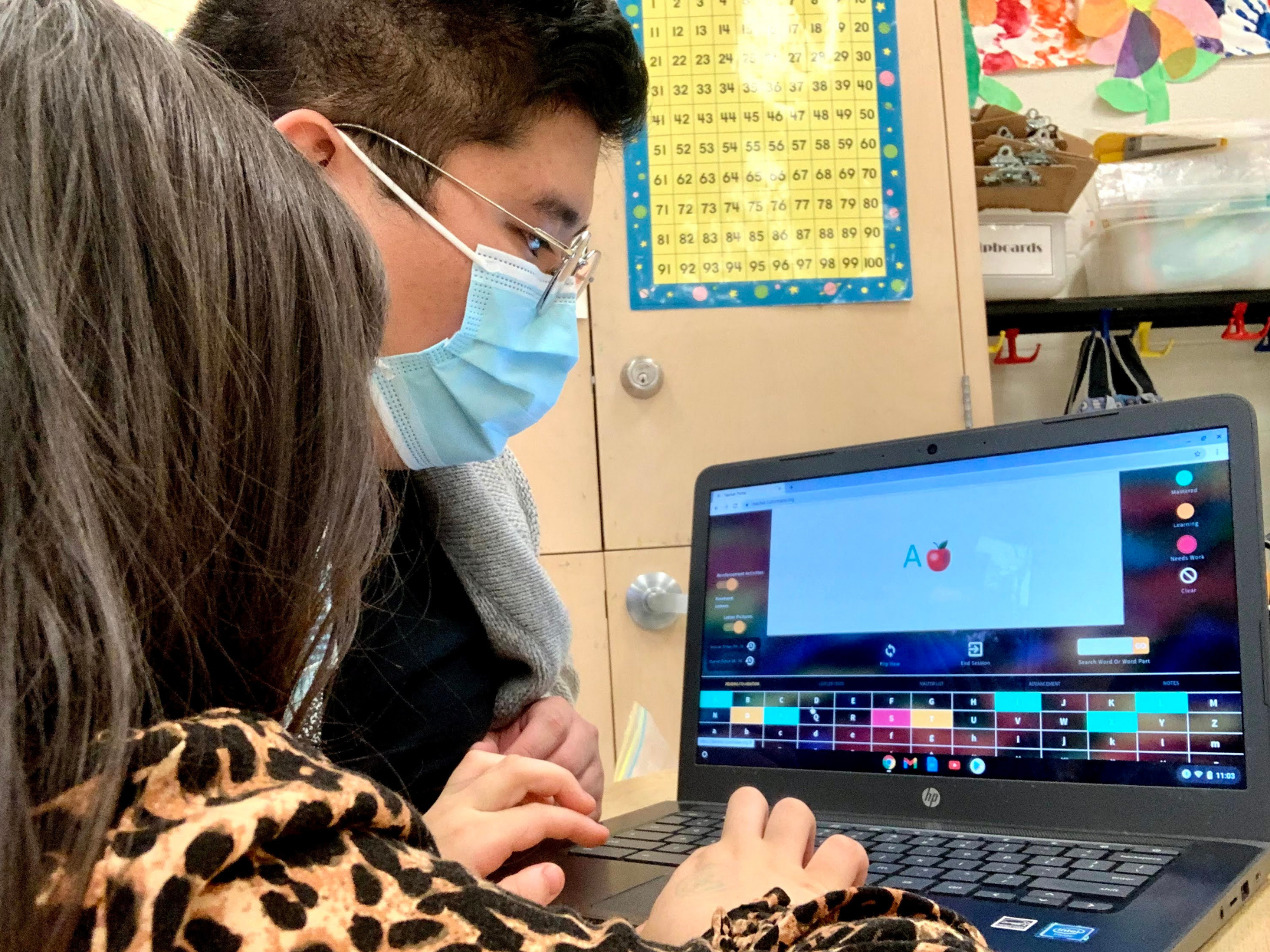New opportunities for early literacy training for children have come to a Vancouver Island community.
Innovations for Learning (IFL), in partnership with SD72 and the Campbell River Literacy Association, has started a program at Ripple Rock Elementary to help kids learn in a unique format.
IFL executive director Fabrice Grover says the training has become more important than ever with the COVID-19 pandemic affecting learning. He says a large number of students get to Grade 3 without a solid ability to read, and targeting young ages is the key to preventing this.
“Every year in Canada, there are 100,000 kids who complete Grade 3 without knowing how to read and write,” said Grover. “And that’s a problem because kids who don’t read at grade level by third grade are four times less likely to graduate. By the time they’re 12, there’s a five-year gap between those kids and the kids who entered school with a higher level of literacy.”
“The gap is smallest in kindergarten and first grade, which is why we’re laser-focused on the five and six-year-olds.”
The program was made possible through $200,000 in funding from the Telus Friendly Future Foundation to bring it to B.C. Grover says the program involves hiring and training a local literacy interventionist.
The “high-dosage” format provides short, intense one-on-one training through technology for students.
“It’s somebody from the community who we train on our program and they go into the school and work with each of the children for five minutes each, for an hour a day,” said Grover. “They’re providing them with a really strong phonics foundation so they have the ability to decode words.”
He says students are later paired up with a virtual volunteer who calls into the classroom and works with the students once a week.
Campbell River Literacy Association executive director Katt Eddy says the program is also helping students after the last 20 months of the COVID-19 pandemic.
“The last 20 months has been a collective trauma societally, in education and in health and our kids don’t necessarily have the tools in which to fully understand what is surrounding them,” said Eddy.
She says the program is helping to catch what she calls “‘grey kids” who maybe wouldn’t be flagged for extra support in literacy. The program gives them a little push to catch up with the rest of the students.
Both Grover and Eddy say the program could also provide an opportunity for language revitalization and reconciliation.
Grover says many of the schools they work with are Indigenous or are near to Indigenous reserves. He says many of the schools are telling them one of the great challenges they face is revitalizing their language.
He says putting Indigenous words in the stories is the start of teaching students how to read, understand and be proud of the heritage in the area.
“I think that education when it comes to language revitalization and cultural touchpoints with the local Indigenous peoples of these lands, I think that education really is the vessel,” said Eddy. “So education is the vessel in which the community needs to guide the learning.”
“Education is meant to help facilitate learning and if the learning locally is highlighted through United Nations declaration, first languages are very important. It’s important to identity and cultural history.”
The two groups hope that this is the start of new relationships with school districts on the island and the province.
Grover says the Tla-o-qui-aht First Nation in Tofino has signed on with the program and talks with the Cowichan Tribes may see the program in the fall.






